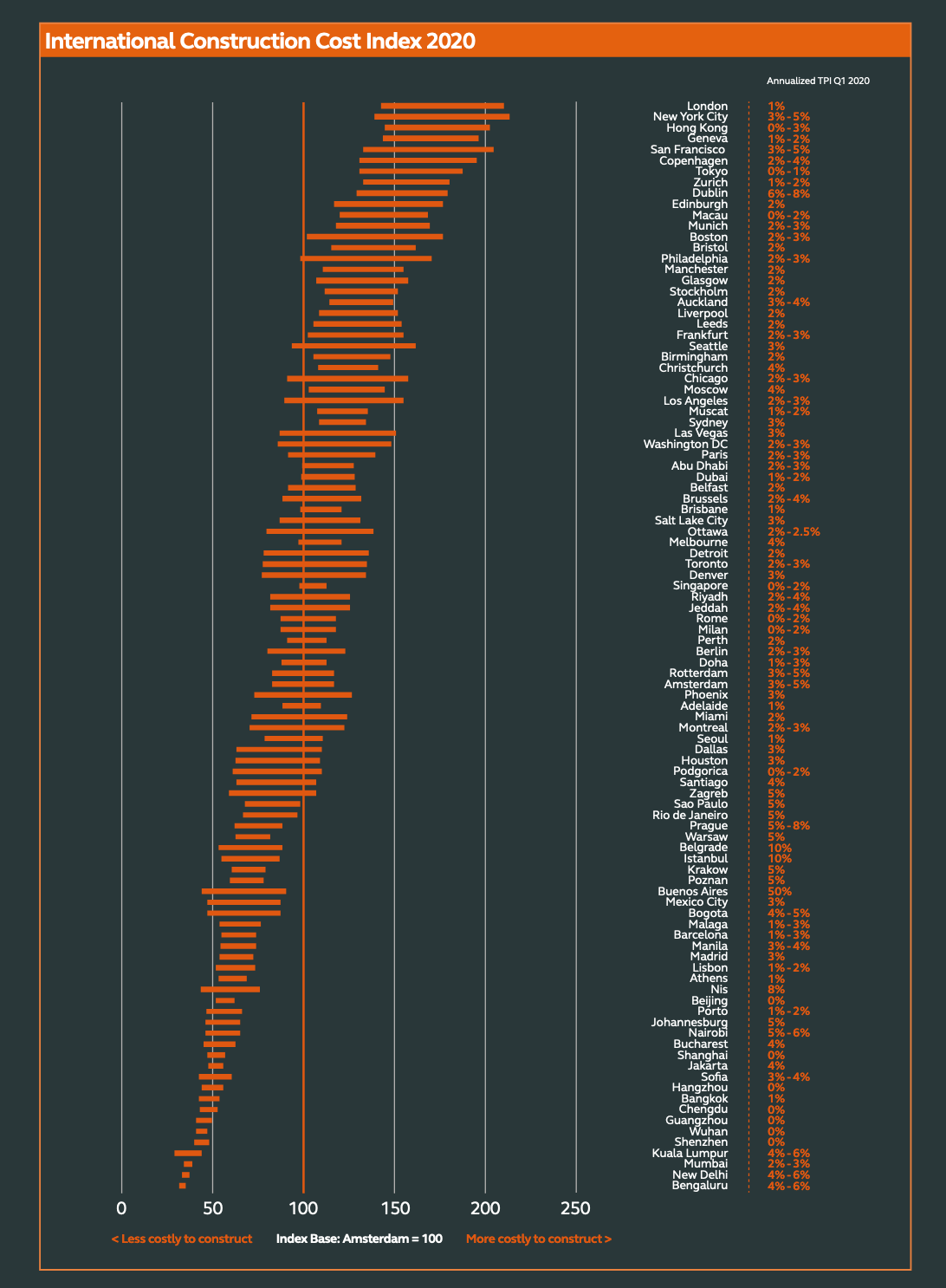Dutch consulting engineer Arcadis has released its fourth annual International Construction Cost Index (ICC) report, highlighting the world’s most expensive cities to build.
The ranking is judged on 20 criteria, including construction costs, market conditions, and assessments from Arcadis.
The top ten are:
1. London
2. New York
3. Hong Kong
4. Geneva
5. San Francisco
6. Copenhagen
7. Tokyo
8. Zurich
9. Dublin
10. Edinburgh
The ten cheapest cities are:
91. Hangzhou
92. Bangkok
93. Chengdu
94. Guangzhou
95. Wuhan
96. Shenzhen
97. Kuala Lumpur
98. Mumbai
99. New Delhi
100. Bengaluru
The index is now using Amsterdam instead of London as the basis for the relative cost of construction. Arcadis says the change has no direct effect on the relative ranking of cities.
Cities in Eastern Europe including Poland, Serbia and Montenegro were included for the first time.
This year’s report addresses the impacts of Covid-19 and climate change on the industry.
Arcadis says the industry should plan for a carbon neutral future, as construction accounts for almost 12% of worldwide energy-related CO2 emissions.

Arcadis’ list of the 100 most expensive cities to build
Andrew Beard, Arcadis’ head of cost and commercial management, said: “With greenhouse gas emissions dropping around the world, the status of our natural environment is perhaps the only area of positive gains from this pandemic.
“This again highlights the fact that over the longer-term, the climate emergency presents an even greater challenge. Right now, as the impact of the virus continues to grow, it is difficult to fathom how we can bounce back quickly.
“Nevertheless, we must overcome this crisis, while enhancing resilience and sustainability, and plotting a course towards a carbon neutral future. Our ability to do so will determine this industry’s future.”
Piet Dircke, Arcadis’ leader of water management and resilience, said: “Resilience is our ability to live and thrive no matter what happens. In the context of the Covid-19 pandemic, it means that the construction industry and society as a whole must withstand the negative impacts and learn from the current crisis, to be better prepared for the future.
“We must make smart decisions that can position us to bounce back even stronger the next time an unforeseeable calamity occurs. Down the line, as construction markets reopen, there will be a push to make these businesses more resilient. Those efforts should be coupled with sustainability so that we are better able to confront the future together and leave behind a better world for future generations.”
Top image: Construction in London (Anyaivanova/Dreamstime)






